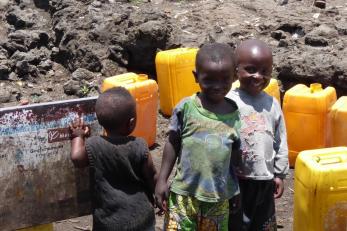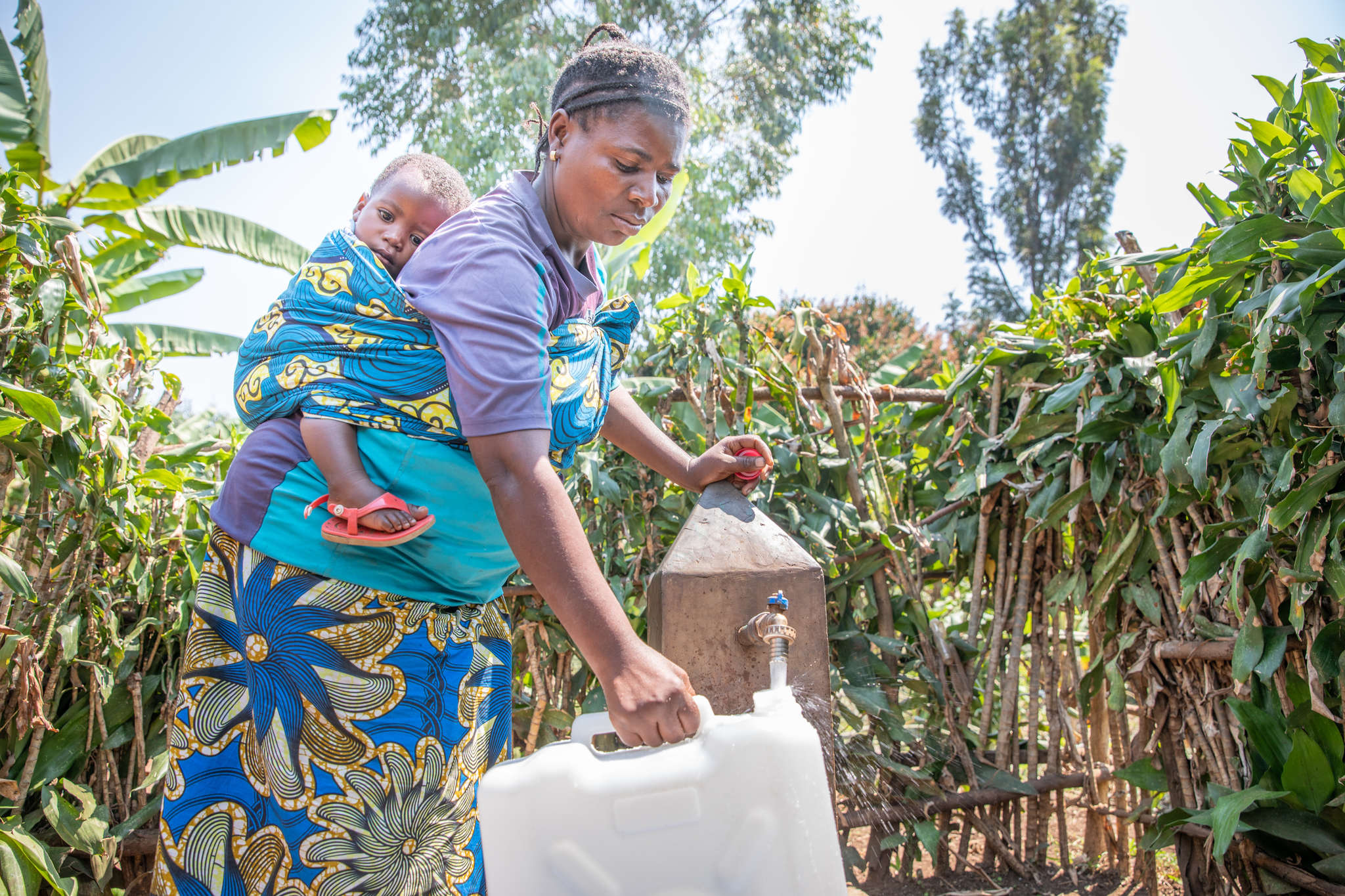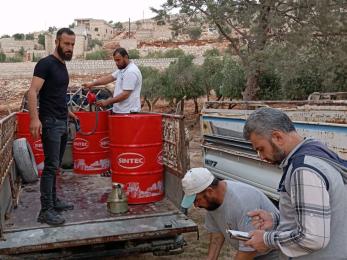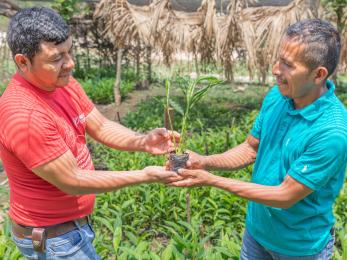Stories from the Field: Democratic Republic of Congo

The Democratic Republic of Congo is one of Mercy Corps’ biggest and most challenging programs.
Eastern Congo has been (and still is) home to as many as 40 militias that have been operating there since the spillover from the Rwandan genocide in 1994. On any given day there may be fighting almost anywhere in the vast area as the government army goes after one or more of them, or as they go after one another. That means people will flee to safety, and, in consequence, tens of thousands of internally displaced people live in host communities and in camps — a fact of life in North Kivu for the last 20 years.
Displacement and IDP camps mean that people don’t have livelihoods, and, as a result, the region has become one of the most heavily aid-dependent areas in the world.
We traveled to Mweso, where Mercy Corps is responsible for WASH response in approximately 30 of the 50 IDP camps in North Kivu, about five hours (though only about 60 miles) from Goma, on what I can certify from personal experience are the worst roads in the world — long stretches of cleared lava in a heavily volcanic area. The Land Cruisers Mercy Corps uses need new tires about every three months. It sounds wimpy to say it, but it is exhausting to sit in a vehicle all day driving over roads where 18-inch deep potholes and rocks the size of your head are the norm. I can't imagine the exhaustion the drivers must feel. In addition, the IDP camps get built on the same rock, since it won't grow crops in the otherwise very fertile soil. It is a sight to behold to see little kids running across the jagged lava barefoot!
Many NGOs have operated here for years, and it is not surprising that people look to them for a handout. Indeed, some have done reasonably well (by local standards) as a result. So Mercy Corps’ challenge is to sell its strategy of moving people from surviving to thriving.
I saw a dramatic example of the two approaches in one of the camps where Mercy Corps works. Solidarités, a French NGO, came in and installed latrines with fabric sides and metal roofs. Mercy Corps, in contrast, did an education campaign about total sanitation and started a program to help people dig latrine pits and build their own latrines out of readily available materials. They don't look nearly as fancy, but the betting is that they'll last longer because of the owner's investment and commitment. Some folks said they were doing better as a result of more families having latrines and it has demonstrated to them that they can solve some of their problems with little or no help.
I also visited a sewing project where Mercy Corps provided training and sewing machines to folks who could then make clothing for sale. They were very enthusiastic and wanted more folks to have the same opportunity. In another such project, one individual had been asking for another specialized sewing machine that would allow him to do fancy stitching, thus enhancing his growing business. The Mercy Corps staff wisely resisted the temptation to give him the machine, and, sure enough, he managed to buy it himself with the proceeds of his work. Sustainability in action.
In Goma, Mercy Corps has done remarkable work in designing, engineering and building a water system to deliver potable water at a reasonable cost to newly settled areas of the city (which has grown dramatically in recent years). Previously, people had to walk to Lake Kivu and get water in jerry cans from the shore. That water was not potable, which led to disease. Moreover, the journey to the Lake wasn’t safe — many women were raped or assaulted in the course of this essential daily activity. It was very gratifying to me to spend time with the dedicated engineers who did the work on this transformative project — laying 28 km of pipes, installing more than 50 tap stands and piloting an innovative public-private partnership to deliver water into some of the poorest neighborhoods of Goma — and to hear them speak with (very justifiable) pride of the difference it has made for so many people, providing potable water on a daily basis to more than 140,000 people of Goma.
Mercy Corps DRC has a dynamic and talented and passionate staff who are doing excellent work in a very difficult environment.


